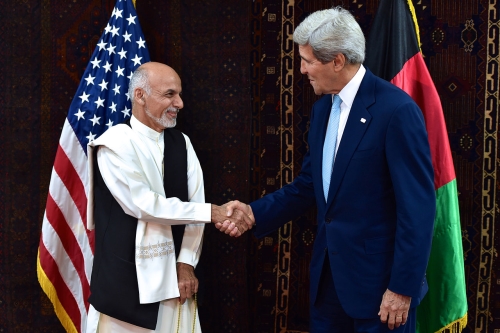
This article was originally published by IPI Global Observatory on 2 October, 2014.
The transfer of power on September 29 from President Hamid Karzai to his successor Ashraf Ghani was momentous but oddly anticlimactic. It was only possible after a highly controversial presidential election between Ghani and former foreign minister Abdullah Abdullah, which brought the country to the brink of chaos. Abdullah refused to recognize the results, which gave Ghani an overwhelming second-round victory. The United States negotiated a power-sharing deal where Ghani would become president, but a “chief executive officer” position would be created for Abdullah. The deal also prescribed an audit of the election supervised by the United Nations to identify and remove fraudulent votes.
